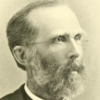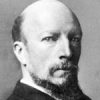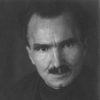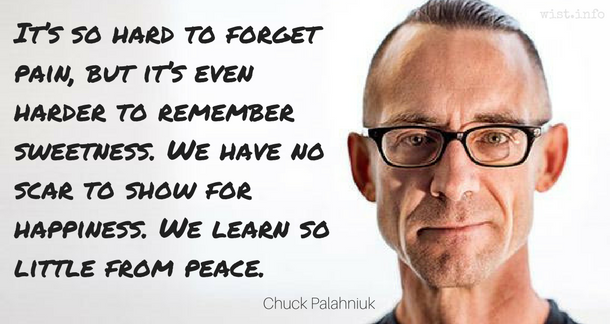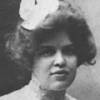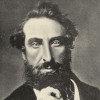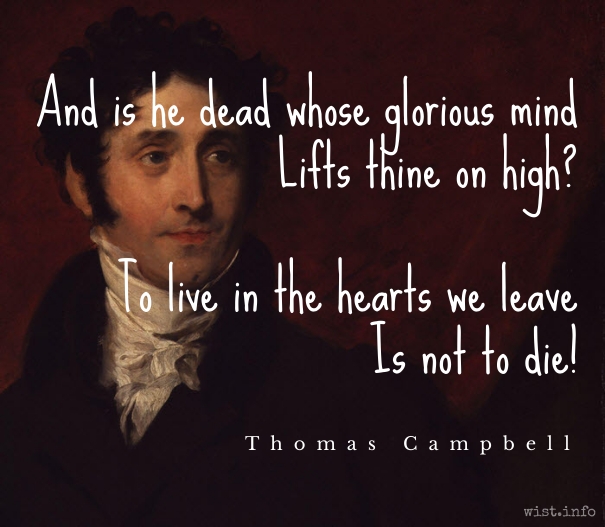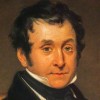What is the end of Fame? ’tis but to fill
A certain portion of uncertain paper:
Some liken it to climbing up a hill,
Whose summit, like all hills, is lost in vapour;
For this men write, speak, preach, and heroes kill,
And bards burn what they call their “midnight taper,”
To have, when the original is dust,
A name, a wretched picture, and worse bust.
Quotations about:
memorial
Note not all quotations have been tagged, so Search may find additional quotes on this topic.
Life’s race well run,
Life’s work well done,
Life’s crown well won,
Now comes rest.Edward H. Parker (1823-1896) American physician, poet
Epitaph of President James Garfield (1881)
(Source)
The phrase was engraved on a tablet placed at the head of his coffin while he lay in state at Cleveland's Memorial Park.
The passage was selected by a committee without a clear source of the material, but it appears to be a loose transcription of the first stanza of a poem Parker wrote for his mother-in-law's funeral:
Life's race well run,
Life's work all done,
Life's victory won,
Now cometh rest.
The differences may be because the Garfield epitaph was back-translated from a Latin translation of Parker's original.
Much more discussion here.
Here rests Erotion’s all-too-hurried shade,
dispatched in her sixth winter by Fate’s crime.
Make yearly offerings to her tiny ghost,
whoever rules this plot after my time.
So may your home and household last for years
with nothing but this stone to call for tears.[Hic festinata requiescit Erotion umbra,
Crimine quam fati sexta peremit hiems.
Quisquis eris nostri post me regnator agelli,
Manibus exiguis annus iusta dato:
Sic lare perpetuo, sic turba sospite solus
Flebilis in terra sit lapis iste tua.]Martial (AD c.39-c.103) Spanish Roman poet, satirist, epigrammatist [Marcus Valerius Martialis]
Epigrams [Epigrammata], Book 10, epigram 61 (10.61) (AD 95, 98 ed.) [tr. McLean (2014)]
(Source)
See also his epitaph to Erotion at 5.34.
(Source (Latin)). Alternate translations:
In her sixth spring, behold Erotion laid:
If heaven we might arrain, an early shade.
Bland successor, whoe'er shall rule this field,
To my blest shadeling annual honors yield.
So may thy verdant vine perennial stand:
So may her teeming shoots o'erspred the land.
So may'st thou never feel a tendrel tor'n:
And may this single stone in thy dominion mourn.
[tr. Elphinston (1782), Book 4, ep. 20]
Underneath this greedy stone,
Lies little sweet Erotion;
Whom the fates, with hearts as cold,
Nipt away at six years old.
Thou, whoever thou mast be,
That hast this small field after me,
Let the yearly rites be paid
To her little slender shade;
So shall no disease or jar
Hurt thy house, or chill thy Lar;
But this tomb here be alone,
The only melancholy stone.
[tr. Hunt (1819)]
Here reposes Erotion in the shade of the tomb that too early closed around her, snatched away by relentless Fate in her sixth winter. Whoever you are that, after me, shall rule over these lands, render annual presents to her gentle shade. So, with undisturbed possession, so, with your family ever in health, may this stone be the only one of a mournful description on your domain.
[tr. Bohn's Classical (1859)]
Here lies Erotion in the shade
Of foliage planted newly.
In her sixth winter did she fade,
Cut off by fate unduly.
Thou, whosoe'er thou be, to whom
Ere long these fields I render,
The annual offerings at her tomb
Discharge; they are but slender.
So, son succeeding sire, from thee
No victims death shall borrow:
But on thy land this stone shall be
The only mark of sorrow.
[tr. Webb (1879)]
Here lies Erotion, whom at six years old
Fate pilfered. Stranger (when I too am cold
Who shall succeed me in my rural field),
To this small spirit annual honours yield.
Bright be thy hearth, hale be thy babes, I crave,
And this, in thy green farm, the only grave.
[tr. Stevenson (1883)]
Here in too early gloom rests Erotion whom, by crime of Fate, her sixth winter laid low. Whoe'er thou shalt be, the lord after me of my little field, to her tiny ghost pay thou year by year thy rites. So may they roof-tree continue, so thy household live unscathed, and in thy fields this gravestone alone call forth a tear!
[tr. Ker (1919)]
Here sleeps the body of the little maid,
Erotion,
Ere her sixth winter fate had called her shade
To hasten on;
Whoe’er thou art who after me shall own
This tiny plot,
Lay year by year the dues upon her stone;
Forget her not.
So shall thy house endure nor suffering know,
And this remain
The only sign and monument of woe
On thy domain.
[tr. Pott & Wright (1921)]
Here lies Erotion at untimely date,
In his sixth year cut down by cruel fate.
You, my successor in this little field,
To his poor ashes annual tribute yield.
So prosper house and home, and on this land
No other monument of mourning stand.
[tr. Francis & Tatum (1924), ep. 556]
Here lies our Erotion
in the untimely shadow of a gravestone.
Her sixth winter hurried her on
to an end that was destined.
I address the future owner of this land,
and ask his yearly reverence, made
to this slender shade:
May your household gods
forever flourish and your whole household enjoy
a happy life --
and may this single stone
be the one place for grief
on your land alone.
[tr. Bovie (1970)]
Here, six years old, by Destiny's crime
Made a ghost before her time,
Erotion lies. Whoever you be
Next lord of my small property,
See that the due of death are paid
Annually to her slender shade:
So may your hearth burn bright and strong,
Your household thrive, yourself live long,
And this small stone, throughout the years,
Remain your only cause for tears.
[tr. Michie (1972)]
Here lies Erotion's hastened shade, whom by crime of Fate her sixth winter slew. Make annual offering to her tiny ghost, whoever after me shall be ruler of my plot of land. So may your home continue and your household live on and this stone be the only thing on your property to call for tears.
[tr. Shackleton Bailey (1993)]
Here in premature gloom Erotion rests
whose sixth winter now will last forever.
Whoever tends this small field after me,
pay each year homage to her slender ghost:
then you will prosper here and never
weep, except this stone bring her to memory.
[tr. Matthews (1995)]
For of old
Rome said to me — “Your readers are your gold.
By them the stream of Lethe you’ll survive,
By them the better part of you will live.”
The wild fig splits Messalla’s marbles through,
And Crispus’ steeds are shattered quite in two :
But books are helped by time nor hurt by thieves,
Memorials that death uninjured leaves.[Quem cum mihi Roma dedisset.
“Nil tibi quod demus maius habemus” ait.
“Pigra per hunc fugies ingratae flumina Lethes
Et meliore tui parte superstes eris.
Marmora Messallae findit caprificus, et audax
Dimidios Crispi mulio ridet equos:
At chartis nec furta nocent et saecula prosunt,
Solaque non norunt haec monumenta mori.”]Martial (AD c.39-c.103) Spanish Roman poet, satirist, epigrammatist [Marcus Valerius Martialis]
Epigrams [Epigrammata], Book 10, epigram 2 (10.2) (AD 95, 98 ed.)[tr. Pott & Wright (1921)]
(Source)
(Source (Latin)). Alternate translations:
Reader, my wealth; whom when to me Rome gave,
Nought greater to bestow (quoth she) I have.
By him ingratefull Lethe thou shalt flye,
And in thy better part shalt never dye.
Wilde Fig-trees rend Messalla's Marbles off;
Crispus halfe-horses the bold Carters scoffe.
Writings no age can wrong, no thieving hand.
Deathlesse alone those Monuments will stand.
[tr. May (1629)]
When Fate to me a constant reader gave;
Receive, she said, the greatest boon I have.
By this beyond oblivion's stream arrive;
And in your better party by this survive.
Statues may moulder; and the clown unbred
Scoff at young Ammon's horse without his head.
But finish'd writings theft and time defy;
The only monument, which cannot die.
[tr. Hay (1755)]
Reader, our riches! Well, said, Rome, I know,
A blester boon I have not to bestow.
By this though thro' Lethean streams shalt strive,
And in thy better part shalt still survive.
The wilding may Messala's marble cleave,
The speaker silence, and the sculptor reave.
The mule's pert driver may reproachless laugh,
At Crispus' coursers dwindled down to half.
Wit's labors onely rape or age defy:
His monuments alone can never die.
[tr. Elphinston (1782)]
When Rome gave you [readers] to me, she said, "I have nothing greater to give you. By his means you will escape the sluggish waves of ungrateful Lethe, and will survive in the better part of yourself. The marble tomb of Messale is split by the wild fig, and the audacious muleteer laughs at the mutilated horses of the statue of Crispus.1 But as for writings, they are indestructible either by thieves or the ravages of time; such monuments alone are proof against death."
[tr. Bohn's Classical (1859)]
For when Rome had given you to me, she said: We have nothing greater to give you. By him will you escape unthankful Lethe's sluggish stream, and will in your better part survive. Messalla's marble the wild-fig sunders, and boldly the mule-driver laughs at Crispus' steeds broken in two. But writings thefts do not injure, and time befriends them, and alone these monuments know not death."
[tr. Ker (1919)]
Rome can tell how dear,
Who gave thee, saying, "Take my best; 'tis here;
By him ungrateful Lethe thou shallt flee
And thy best parts have immortality."
The fig-tree splits Messala's marble blocks,
And the rough drover draggled Crispus mocks.
Verses grow great with Time and Fate defy;
Such monuments alone can never die.
[tr. Francis & Tatum (1924), ep. 508]
When Rome gave you to me, she said: "I have nothing greater to give you. through him you will escape ungrateful Lethe's idle waters and survive in the better part of yourself. The fig tree splits Messalla's marble, the bold muleteer laughs at Crispus' halved horses. But thefts do not harm paper and the centuries do it good. These are the only memorials that cannot die."
[tr. Shackleton Bailey (1993)]
Reader, Patron, willed to me by Rome
saying: "No greater gift! Through him
You'll flee neglectful Lethe's stagnant flood --
the better part of you survive.
Wild-fig rives the marble, heedless muleteers
deride the busted steeds of bronze.
But verse no decrease knows, time adds to verse,
deathless alone of monuments."
[tr. Whigham (1985), "Rome's Gift"]
While rivers run into the deep,
While shadows o’er the hillside sweep,
While stars in heaven’s fair pasture graze,
Shall live your honour, name, and praise,
Whate’er my destined home.[In freta dum fluvii current, dum montibus umbrae
lustrabunt convexa, polus dum sidera pascet,
semper honos nomenque tuum laudesque manebunt,
quae me cumque vocant terrae.]Virgil (70-19 BC) Roman poet [b. Publius Vergilius Maro; also Vergil]
The Aeneid [Ænē̆is], Book 1, l. 607ff (1.607-610) [Aeneas] (29-19 BC) [tr. Conington (1866)]
(Source)
Expressing undying gratitude to Dido for taking him and his soldiers in. He will then marry Dido, desert her, and leave her to her suicide. At least he gets haunted by her ghost in the Underworld.
(Source (Latin)). Alternate translations:
Whilst convex'd hills have shadows, to the maine,
Whilst rivers run, whilst poles the stars sustaine,
Thy honour; name, and same, shall last, what land
So-ever me invites.
[tr. Ogilby (1649)]
While rolling rivers into seas shall run,
And round the space of heav'n the radiant sun;
While trees the mountain tops with shades supply,
Your honour, name, and praise shall never die.
Whate'er abode my fortune has assign'd,
Your image shall be present in my mind
[tr. Dryden (1697)]
While the rivers to the sea
Shall run, -- while mountain shadows move around
Their sides, -- and while the heavens shall feed the
stars. So long thy honor, and thy name and praise
Shall last, whatever lands may call me hence.
[tr. Cranch (1872)]
While rivers run into the sea, while the mountain shadows move across their slopes, while the stars have pasturage in heaven, ever shall thine honour, thy name and praises endure in the unknown lands that summon me.
[tr. Mackail (1885)]
Now while the rivers seaward run, and while the shadows stray
O'er hollow hills, and while the pole the stars is pasturing wide,
Still shall thine honour and thy name, still shall thy praise abide
What land soever calleth me.
[tr. Morris (1900)]
O, while the rivers run
to mingle with the sea, while shadows pass
along yon rounded hills from vale to vale,
and while from heaven's unextinguished fire
the stars be fed -- so long thy glorious name,
thy place illustrious and thy virtue's praise,
abide undimmed. -- Yet I myself must go
to lands I know not where.
[tr. Williams (1910)]
While rivers run into the sea, while on the mountains shadows move over the slopes, while heaven feeds the stars, ever shall thy honour, thy name, and thy praises endure, whatever be the lands that summon me!
[tr. Fairclough (1916)]
While rivers run to sea, while shadows move
Over the mountains, while the stars burn on,
Always, your praise, your honor, and your name,
Whatever land I go to, will endure.
[tr. Humphries (1951)]
So long as rivers run to the sea, and shadows wheel round
The hollows of the hills, and star-flocks browse in the sky,
Your name, your fame, your glory shall perish not from the land
Wherever I am summoned to go.
[tr. Day-Lewis (1952)]
While rivers run into the sea and shadows
still sweep the mountain slopes and stars still pasture
upon the sky, your name and praise and honor
shall last, whatever be the lands that call me.
[tr. Mandelbaum (1971), l. 852ff]
So long as brooks flow seaward, and the shadows
Play over the moutnain slopes, and highest heaven
Feeds the stars, your name and your distinction
Go with me, whatever lands may call me.
[tr. Fitzgerald (1981), l. 828ff]
While rivers run into the sea, while shadows of mountains move in procession round the curves of valleys, while the sky feeds the stars, your honour, your name, and your praise will remain for ever in every land to which I am called.
[tr. West (1990)]
Your honour, name and praise will endure forever,
whatever lands may summon me, while rivers run
to the sea, while shadows cross mountain slopes,
while the sky nourishes the stars.
[tr. Kline (2002)]
While rivers run to the sea, while shadows
Move over mountainsides, while the sky
Pastures the stars, ever shall your honor,
Your name, and your praises endure,
Whatever the lands that summon me.
[tr. Lombardo (2005)]
So long as rivers run to the sea, so long as shadows
travel the mountain slopes and the stars range the skies,
your honor, your name, your praise will live forever,
whatever lands may call me to their shores
[tr. Fagles (2006), l. 727]
While rivers flow to the seas and shadows cross the moutnain slopes, while sky pastures the stars, your honor and your name and praise will last for me, whatever country calls.
[tr. Bartsch (2021)]
Let us learn from the lips of death the lessons of life. Let us live truly while we live, live for what is true and good and lasting. And let the memory of our dead help us to do this. For they are not wholly separated from us, if we remain loyal to them. In spirit they are with us. And we may think of them as silent, invisible, but real presences in our households.
Felix Adler (1851-1933) German-American educator
Life and Destiny, Lecture 8 “Suffering and Consolation” (1903)
(Source)
Write Injuries in Dust, Benefits in Marble.
Benjamin Franklin (1706-1790) American statesman, scientist, philosopher, aphorist
Poor Richard’s Almanack, “August” (1747)
(Source)
As with so much else of Franklin's, this phrase is not without earlier forms, e.g.: Thomas More, History of King Richard III (1513):
For men use, if they have an evil turn, to write it in marble; and whosoever does us a good turn, we write it in dust.
Or see Shakespeare, Henry VIII 4.2.45-46 (1613):
Men's evil manners live in brass, their virtues
We write in water.
Variants include "but kindnesses in marble" or "but kindness in marble."
This also shows up as a French saying in various forms:
- "Ecrivez les injures sur le sable, mais les bienfaits sur le marbre."
- "Écrivez les injures sur le sable, gravez les bienfaits sur le marbre."
Fortunate pair!
If there be any power
within my poetry, no day shall ever
erase you from the memory of time.[Fortunati ambo! Siquid mea carmina possunt,
nulla dies umquam memori vos eximet aevo.]Virgil (70-19 BC) Roman poet [b. Publius Vergilius Maro; also Vergil]
The Aeneid [Ænē̆is], Book 9, l. 447ff (9.447-448) (29-19 BC) [tr. Mandelbaum (1971), l. 592ff]
(Source)
On the deaths of Nisus and Euryalus, lying after battle in each other's arms.
The 9/11 Memorial and Museum in New York City (see image) uses a variant of this ("No day shall erase you from the memory of time"), though some have questioned the contextual propriety.
(Source (Latin)). Alternate translations:
You, if my verse have power, be ever blest,
No age shall you forget ....
[tr. Ogilby (1649)]
O happy friends! for, if my verse can give
Immortal life, your fame shall ever live.
[tr. Dryden (1697)]
Happy pair! if my verses can aught avail, no day shall ever erase you from the records of time.
[tr. Davidson/Buckley (1854)]
Blest pair! if aught my verse avail,
No day shall make your memory fail.
[tr. Conington (1866)]
Ay, happy pair! If aught my verse can do,
No lapse of time shall ever dim your fame,
[tr. Cranch (1872), l. 551]
Happy pair! if my verse is aught of avail, no length of days shall ever blot you from the memory of time.
[tr. Mackail (1885)]
O happy twain, if anywise my song-craft may avail,
From out the memory of the world no day shall blot your tale.
[tr. Morris (1900)]
O happy pair! if aught my verse ensure,
No length of time shall make your memory wane,
[tr. Taylor (1907), st. 57, ll. 510-11]
Heroic pair and blest! If aught I sing
have lasting music, no remotest age
shall blot your names from honor's storied scroll.
[tr. Williams (1910), l. 446ff]
Happy pair! If aught my verse avail, no day shall ever blot you from the memory of time.
[tr. Fairclough (1918)]
Fortunate boys!
If there is any power in my verses,
You will not be forgotten in time and story.
[tr. Humphries (1951)]
Ah, fortunate pair! if my poetry has any influence,
Time in its passing shall never obliterate your memory.
[tr. Day-Lewis (1952)]
Fortunate, both! If in the least my songs
Avail, no future day will ever take you
Out of the record of remembering Time.
[tr. Fitzgerald (1981), l. 633ff]
Fortune has favored you both! If there is any power in my poetry, the day will never come when time will erase you from the memory of man.
[tr. West (1990)]
Happy pair! If my poetry has the power, [...]
no day will raze you from time’s memory.
[tr. Kline (2002)]
Happy pair,
If my poetry has any power
Never shall you be blotted from memory.
[tr. Lombardo (2005)]
How fortunate, both at once!
If my songs have any power, the day will never dawn
that wipes you from the memory of the ages.
[tr. Fagles (2006)]
Lucky pair! If my song has any power, no day will steal you from time's memory.
[tr. Bartsch (2021)]
BREVILLE: And what do you want them to say about the writer Rod Serling a hundred years from now?
SERLING: I don’t care. I just want them to remember me a hundred years from now. I don’t care that they’re not able to quote any single line that I’ve written. But just that they can say, “Oh, he was a writer.” That’s sufficiently an honored position for me.
BREVILLE: Then that’s what it all boils down to really?
SERLING: I guess we all have a little vaunting itch for immortality, I guess that must be it.
Rod Serling (1924-1975) American screenwriter, playwright, television producer, narrator
“Rod Serling: The Facts of Life,” interview by Linda Brevelle (4 Mar 1975)
(Source)
Serling's last interview. He died less than four months later.
If we are to lend credence to our mourning, there are acknowledgements that must be made now, albeit belatedly. We must act on the altogether proper assumption that Martin Luther King asked for nothing but that which was his due. He demanded no special concessions, no favored leg up the ladder for his people, despite our impatience with his lifelong prodding of our collective conscience. He asked only for equality, and it is that which we denied him.
We must look beyond riots in the streets to the essential righteousness of what he asked of us. To do less would make his dying as senseless as our own living would be inconsequential.
Rod Serling (1924-1975) American screenwriter, playwright, television producer, narrator
Letter to the Editor, Los Angeles Times (8 Apr 1968)
(Source)
Reprinted in Anne Serling, As I Knew Him: My Dad, Rod Serling (2013).
Near this spot
are deposited the Remains of one
who possessed Beauty without Vanity,
Strength without Insolence,
Courage without Ferocity,
and all the Virtues of Man without his Vices.
This Praise, which would be unmeaning Flattery
if inscribed over human Ashes,
is but a just tribute to the Memory of
BOATSWAIN, a DOGGeorge Gordon, Lord Byron (1788-1824) English poet
“Epitaph to a Dog” (1808)
(Source)
Carved on the headstone over Boatswain's grave at Newstead Abbey, the family's ancestral home. Byron acquired the dog at age fifteen; Boatswain died of rabies, an endemic disease in England at the time, five years later. Byron wanted to be buried beside him, but the sale of the property made that impossible.
While the rest of the poem is considered Byron's, these first lines may have been written by his friend, John Cam Hobhouse. More discussion here.
A good character is the best tombstone. Those who loved you, and were helped by you, will remember you when forget-me-nots are withered. Carve your name on hearts, and not on marble.
Charles Spurgeon (1834-1892) British Baptist preacher, author [Charles Haddon (C.H.) Spurgeon]
John Ploughman’s Talk: Or Plain Advice for Plain People, “Monuments” (1869)
(Source)
In religions which have lost their creative spark, the gods eventually become no more than poetic motifs or ornaments for decorating human solitude and walls.
I am oppressed with a sense of the impropriety of uttering words on this occasion. If silence is ever golden, it must be here, beside the graves of fifteen thousand men, whose lives were more significant than speech, and whose death was a poem, the music of which can never be sung. With words we make promises, plight faith, praise virtue. Promises may not be kept, plighted faith may be broken, and vaunted virtue be only the cunning mask of vice. We do not know one promise these men made, one pledge they gave, one word they spoke: but we do know they summed up and perfected, by one supreme act, the highest virtues of men and citizens. For love of country they accepted death, and thus resolved all doubts, and made immortal their patriotism and their virtue. For the noblest man that lives, there still remains a conflict. He must still withstand the assaults of time and fortune, must still be assailed with temptations, before which lofty natures have fallen; but with these the conflict ended, the victory was won, when death stamped on them the great seal of heroic character, and closed a record which years can never blot.
James A. Garfield (1831-1881) US President (1881), lawyer, lay preacher, educator
Speech at Arlington National Cemetery, Decoration Day (30 May 1868)
(Source)
A speech by Garfield, then a Congressman and a former Union Major General in the Civil War, for the first Decoration Day (later Memorial Day) ceremonies.
Darkness and light divide the course of time, and oblivion shares with memory a great part even of our living beings; we slightly remember our felicities, and the smartest strokes of affliction leave but short smart upon us. Sense endureth no extremities and sorrows destroy us or themselves. To weep into Stones are fables. Afflictions induce callousities, miseries are slippery, or fall like Snow upon us, which notwithstanding is no unhappy stupidity. To be ignorant of evils to come, and forgetful of evils past, is a merciful provision in nature, whereby we digest the mixture of our few and evil days, and our delivered senses not relapsing into cutting remembrances, our sorrows are not kept raw by the edge of repetitions.
Thomas Browne (1605-1682) English physician and author
Hydriotaphia, or Urne-Buriall, ch. 5 (1658)
(Source)
It was later that the story of Windle Poons really came to an end, if “story” means all that he did and caused and set in motion. In the Ramtop village where they dance the real Morris dance, for example, they believe that no one is finally dead until the ripples they cause in the world die away — until the clock he wound up winds down, until the wine she made has finished its ferment, until the crop they planted is harvested. The span of someone’s life, they say, is only the core of their actual existence.
I hate that I’ve become one of those old men who visits a cemetery to be with his dead wife. When I was (much) younger I used to ask Kathy what the point would be. A pile of rotting meat and bones that used to be a person isn’t a person anymore; it’s just a pile of rotting meat and bones. The person is gone — off to heaven or hell or wherever or nowhere. You might as well visit a side of beef.
When you get older you realize this is still the case. You just don’t care. It’s what you have.
Posthumous charities are the very essence of selfishness, when bequeathed by those who, when alive, would part with nothing.
Charles Caleb "C. C." Colton (1780-1832) English cleric, writer, aphorist
Lacon: or, Many Things in Few Words, #341 (1820)
(Source)
The Church does not superstitiously observe days, merely as days, but as memorials of important facts. Christmas might be kept as well upon one day of the year as another; but there should be a stated day for commemorating the birth of our Savior, because there is danger that what may be done on any day, will be neglected.
Samuel Johnson (1709-1784) English writer, lexicographer, critic
Comment (22 Mar 1767)
(Source)
In James Boswell, The Life of Samuel Johnson (1791)
For I know not why we should delay our tokens of respect to those who deserve them, until the heart that our sympathy could have gladdened has ceased to beat. As men cannot read the epitaphs inscribed upon the marble that covers them, so the tombs that we erect to virtue often only prove our repentance that we neglected it when with us.
Edward George Bulwer-Lytton (1803-1873) English novelist and politician
Letter to F. T. Mappin (25 Sep 1855)
(Source)
Quoted in The Illustrated London News, Vol. 27 (6 Oct 1855)
I was told that the Chinese said they would bury me by the Western Lake and build a shrine to my memory. I have some slight regret that this did not happen as I might have become a god, which would have been very chic for an atheist.
And is he dead whose glorious mind
Lifts thine on high?
To live in the hearts we leave
Is not to die!
Let the sweet Muses lead me to their soft retreats, their living fountains, and melodious groves, where I may dwell remote from care, master of myself … let me no more be seen in the wrangling forum, a pale and odious candidate for precarious fame … let me live free from solicitude … and when nature shall give the signal to retire may I possess no more than I may bequeath to whom I will. At my funeral let no token of sorrow be seen, no pompous mockery of woe. Crown me with chaplets; strew flowers on my grave, and let my friends erect no vain memorial to tell where my remains are lodged.
Tacitus (c.56-c.120) Roman historian, orator, politician [Publius or Gaius Cornelius Tacitus]
“A Dialogue on Oratory,” sec. 13, Dialogus, Agricola, Germania
In The Works of Tacitus, Oxford trans., rev., vol. 2, (1854). The above is the version read at the funeral for Justice Hugo Black. The printed version differs in reading, at the start, "Me let the sweet Muses lead," and in using "anxious" for "odious."
Alt trans. (Peterson (1914)): "As for myself, may the 'sweet Muses,' as Virgil says, bear me away to their holy places where sacred streams do flow, beyond the reach of anxiety and care, and free from the obligation of performing each day some task that goes against the grain. May I no longer have anything to do with the mad racket and the hazards of the forum, or tremble as I try a fall with white-faced Fame. I do not want to be roused from sleep by the clatter of morning callers or by some breathless messenger from the palace; I do not care, in drawing my will, to give a money-pledge for its safe execution through anxiety as to what is to happen afterwards; I wish for no larger estate than I can leave to the heir of my own free choice. Some day or other the last hour will strike also for me, and my prayer is that my effigy may be set up beside my grave, not grim and scowling, but all smiles and garlands, and that no one shall seek to honour my memory either by a motion in the senate or by a petition to the Emperor."
Some of them left a name behind them, so that their praises are still sung. While others have left no memory, and disappeared as though they had not existed, they are now as though they had never been, and so too, their children after them.
The Bible (The Old Testament) (14th - 2nd C BC) Judeo-Christian sacred scripture [Tanakh, Hebrew Bible], incl. the Apocrypha (Deuterocanonicals)
Sirach (Ecclesiasticus) 44:8-9 [JB (1966)]
(Source)
Alternate translations:
There be some of them, that have left a name behind them, that their praises might be reported. And some there be, which have no memorial; who are perished, as though they had never been; and are become as though they had never been born; and their children after them.
[KJV (1611)]
They that were born of them have left a name behind them, that their praises might be related: And there are some, of whom there is no memorial: who are perished, as if they had never been: and are become as if they had never been born, and their children with them.
[DRA (1899)]
Some of them left a reputation, and people still praise them today. There are others who are not remembered, as if they had never lived, who died and were forgotten, they, and their children after them.
[GNT (1976)]
Some of them have left behind a name, so that others declare their praise. But of others there is no memory; they have perished as though they had never existed; they have become as though they had never been born, they and their children after them.
[NRSV (1989 ed.)]


